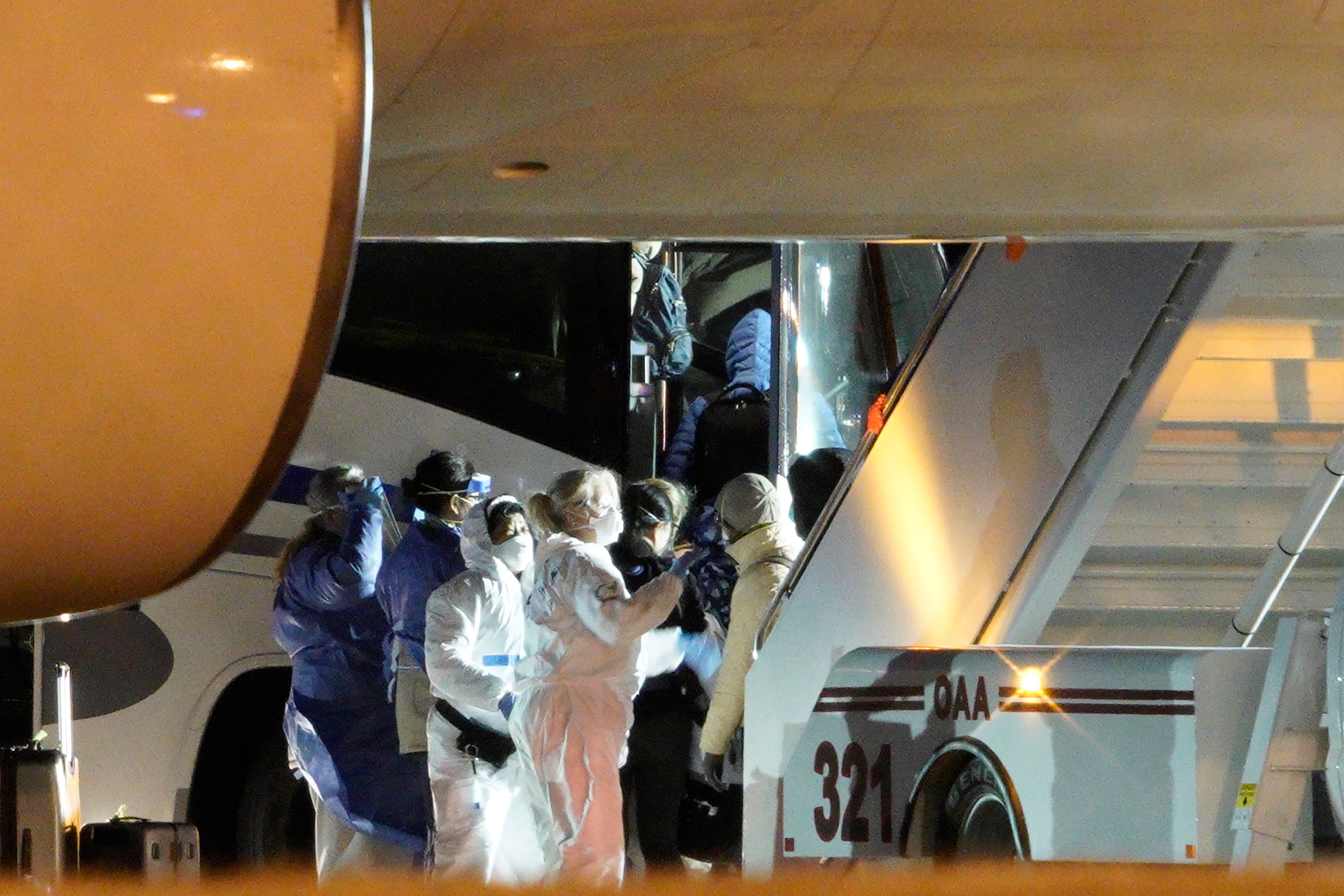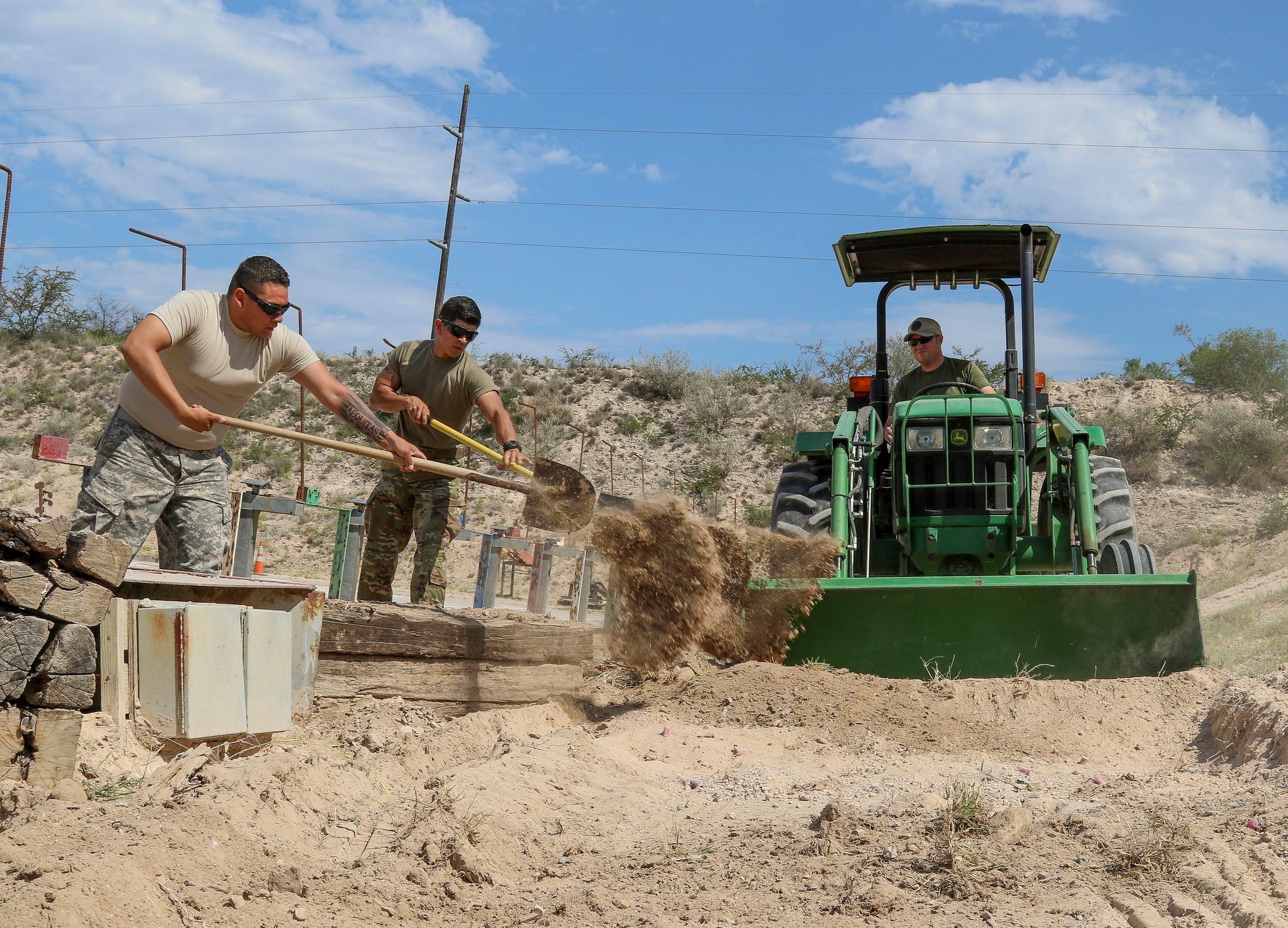While the number of cases of the novel coronavirus, COVID-19, continues to grow around the country and the globe, lawmakers are considering how best to cut down on the spread of the disease. But the measures being taken have some citizens and service members wondering if martial law may be declared.
As of March 17, more than 1,500 Guard personnel in 22 states were called up to aid efforts to stop the spread of COVID-19 as the World Health Organization declared the coronavirus a pandemic on March 11, with President Donald Trump following two days later to classify the virus as a national emergency.
California Gov. Gavin Newsom in a March 15 presser said that martial law was not necessary to combat coronavirus in his state.
“If you want to establish a framework of martial law, which is ultimate authority and enforcement, we have the capacity to do that, but we are not feeling at this moment that is a necessity,” Newsom said.
On March 16, Florida Sen. Marco Rubio tweeted, albeit with a spelling error, requesting everyone stop sharing misinformation about the use of martial law to maintain stability in this ongoing crisis. He wrote, “Please stop spreading stupid rumors about marshall law. COMPLETELY FALSE. We will continue to see closings & restrictions on hours of non-essential businesses in certain cities & states. But that is NOT marshall law.”
What is ‘martial law’
In simple terms, martial law is the replacement of civil rule with temporary military authority in a time of crisis. While its imposition is rare, the United States does have several noteworthy instances where martial law came into play, including in times of war, natural disasters and civic disputes.
Though there is no precise definition of martial law, the precedent in the United States holds that under it, “certain civil liberties may be suspended, such as the right to be free from unreasonable searches and seizures, freedom of association, and freedom of movement. And the writ of habeas corpus [the right to a trial before imprisonment] may be suspended," according to a legal journal.
Martial law can be declared by both the president and by Congress. The governor of a state may also declare martial law if it is included in that state’s constitution. However, Congress has never solely imposed it.
RELATED

During the War of 1812, then-Gen. Andrew Jackson imposed martial law within his encampment at New Orleans, which he had recently liberated.
“Notorious examples include Franklin D. Roosevelt’s internment of U.S. citizens and residents of Japanese descent during World War II and George W. Bush’s programs of warrantless wiretapping and torture after the 9/11 terrorist attacks,” the Atlantic reported. “Abraham Lincoln conceded that his unilateral suspension of habeas corpus during the Civil War was constitutionally questionable, but defended it as necessary to preserve the Union.”
But martial law is not without limits. The Posse Comitatus Act, passed on June 18, 1878, stopped federal troops from supervising Confederate state elections during Reconstruction. It originally applied only to the Army, but has since been amended to include the Defense Department and the other service branches. That act essentially prohibits troops from carrying out domestic law enforcement actions such as searching and seizing property and dispersing crowds. National Guard units, however, as they operate under state-rule, are exempt from the Posse Comitatus Act.
RELATED

In extreme circumstances, there is an exception: the Insurrection Act, which allows the use of active-duty or National Guard troops for federal law enforcement in cases when “rebellion against the authority of the U.S. makes it impracticable to enforce the laws of the U.S. by the ordinary course of judicial proceedings,” according to U.S. Northern Command.
One of the more relevant cases, at least as it may pertain to National Guard units being called up to aid in the coronavirus pandemic, is that of the John Warner National Defense Authorization Act for Fiscal Year 2007. The bill, signed into law in 2006, gave the president the power to take command of National Guard units under the guise of martial law without the approval of state governors until its expiration a year later, creating a precedent for such action.
Calling for military aid
Some lawmakers have begun calling for deeper military involvement as COVID-19 spreads.
“I would call out the military now,” former Vice President Joe Biden said at a Democratic primary debate on March 15. “They have the ability to provide this surge that hospitals need. They have the capacity to build 500 hospital beds and tents that are completely safe and secure.”
However, one major disadvantage to mobilizing the Guard or the Reserves is that those personnel would be redistributed away from civilian hospitals and duties.
“What we are trying to be very careful about is not overpromising,” Joint Staff Surgeon General Brig. Gen. Paul Friedrichs said in a March 16 Pentagon briefing. “We want to be factual about what we have. Our fixed facilities are designed to the force that we have. They are not thousand-bed medical centers all over the United States. They are, for the most part, small community hospitals.”
New York Gov. Andrew Cuomo wrote an op-ed in the New York Times pleading with Trump to increase testing and mobilize the military to help open more hospital beds before the situation spirals out of control.
“At this point, our best hope is to utilize the Army Corps of Engineers to leverage its expertise, equipment and people power to retrofit and equip existing facilities — like military bases or college dormitories — to serve as temporary medical centers,” he wrote. “Then we can designate existing hospital beds for the acutely ill.”
The president has named the coronavirus a “major disaster” under the Stafford Act, which enumerates how the federal government can handle emergency responses, which no president has ever done before in response to a health epidemic. While much of the coronavirus response falls under the purview of federal government, “[enforcing] laws relating to public health and safety falls squarely within the powers of the states under the Tenth Amendment,” The Atlantic reported.
As such, states would most likely need to put in requests for Stafford Act declarations for COVID-19 relief.
For now, no major mobilizations have occurred, and the power to call up the National Guard remains with the states, including for drill weekends and other duties.
“I trust the [state adjutants general] will continue to make decisions at their level to ensure our force of 450,000 people will be ready when their governors call,” said Gen. Joseph Lengyel, chief of the National Guard Bureau, in a press release March 16.
Sarah Sicard is a Senior Editor with Military Times. She previously served as the Digitial Editor of Military Times and the Army Times Editor. Other work can be found at National Defense Magazine, Task & Purpose, and Defense News.









